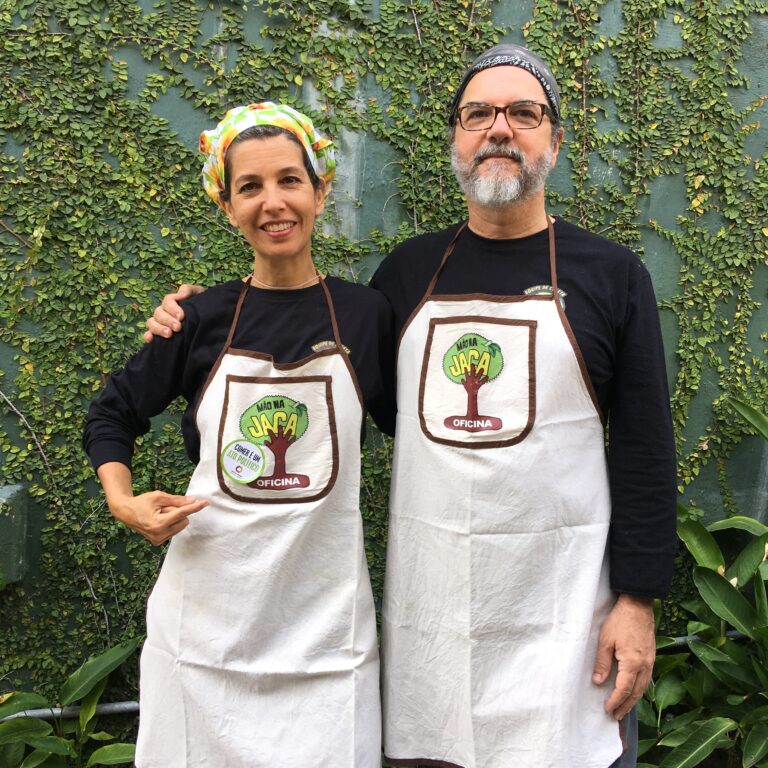Due to issues related to the History of Brazilian Colonization and its slavery-based agricultural economy, from the 17th century onwards, many jackfruit trees were planted on the Brazilian coast and mainly in Rio de Janeiro. Here they have adapted very well and are highly productive. Each tree produces more than half a ton per harvest, with the potential to produce 2,500 savory meals.
Every year tons of jackfruit rot on the ground in Rio de Janeiro. The exact amount is still unknown, but there is no doubt that waste is the epitome of the city’s relationship with this fruit. Even among those who enjoy eating it, the fact that its use for making savory dishes is little known here reduces our ability to fully make use of them.
The Mão na Jaca (Hands-on Jackfruit) project disseminates the culture of using green jackfruit in savory dishes for populations that are socially vulnerable and close to public and private jackfruit trees. Fight against poverty, fight hunger and waste, strengthen agroecological and healthy food consumption, inclusive education, female empowerment, economic growth, reduction of inequalities. All this stimulates the construction of more sustainable cities and consumption. Work for the sustainability of forests, promoting the approximation of citizens to their trees and urban forests.
In a local biome, where jackfruit trees are an imported species, the tree is often seen as an invading plague. This makes new proposals for the management of jackfruit trees in conservation areas, through the consumption of their green fruits by the local population and using green jackfruit in school lunches, extra important.
These are some of the goals of the Mão na Jaca (Hands-on Jackfruit) project, which meet the various Sustainable Development Goals agreed by the UN to get us closer to the possibility of human survival on this planet by 2030.

